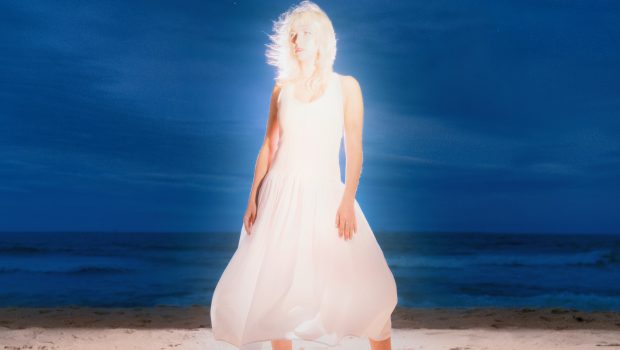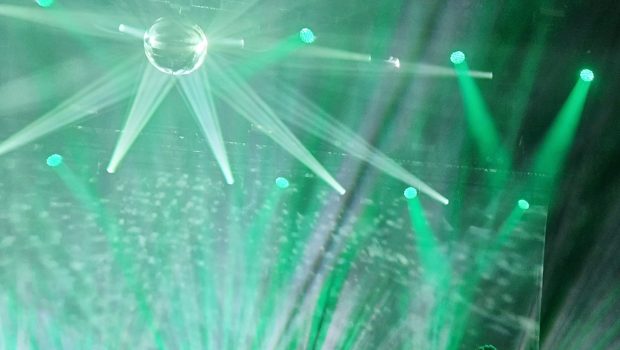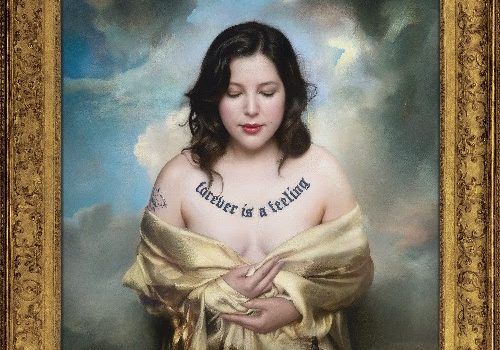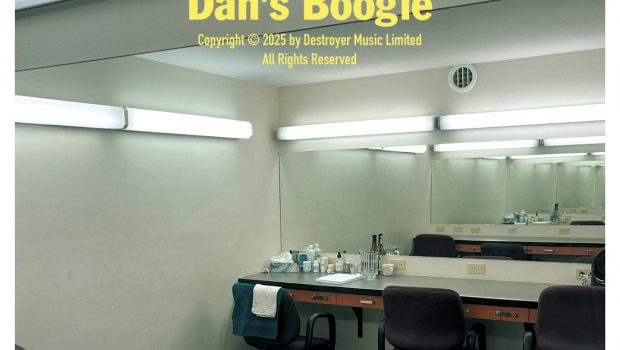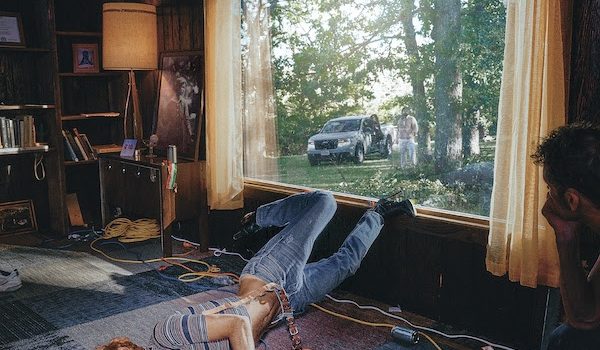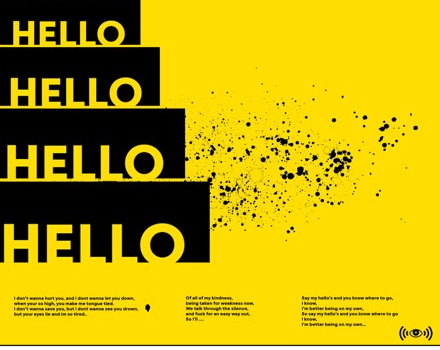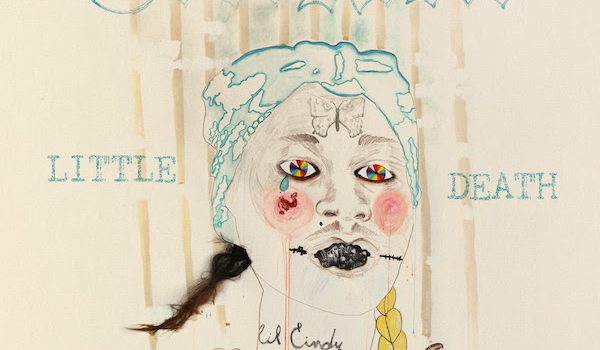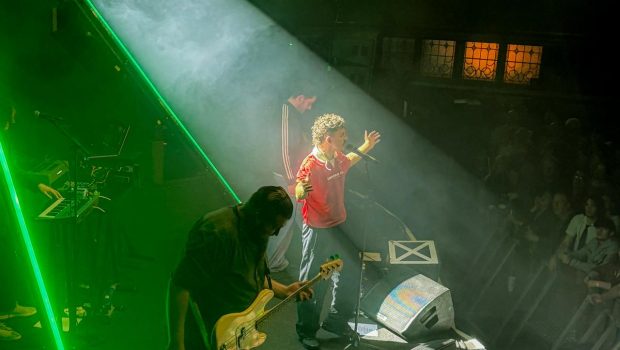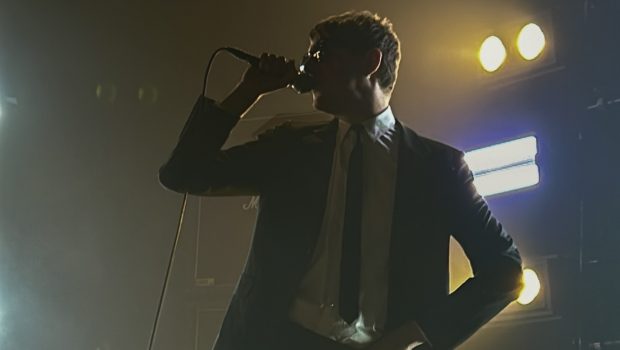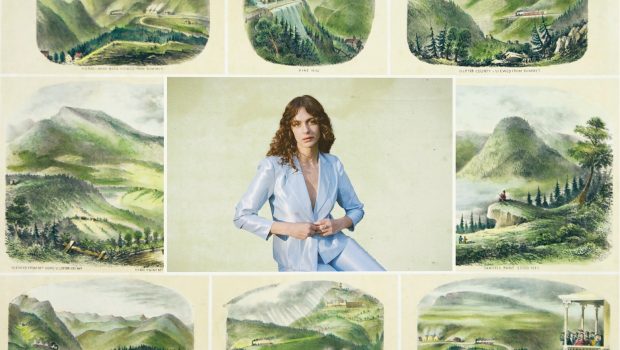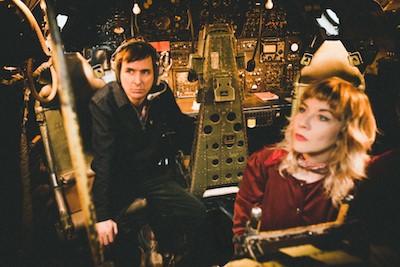 Manchester’s Jim Noir and Leonore Wheatley have joined forces as Co-Pilot, creating a debut album bursting with intriguing electronica. It manages to combine synth riffs with disco, funk and pop for an album which is mesmersingly enjoyable. From their studio in ‘the least gentrified area of Manchester’ they tell us about their love of disco, sampling ice cream vans, and why Co-Pilot’s debut album ‘Rotate ‘ is a new adventure for them both
Manchester’s Jim Noir and Leonore Wheatley have joined forces as Co-Pilot, creating a debut album bursting with intriguing electronica. It manages to combine synth riffs with disco, funk and pop for an album which is mesmersingly enjoyable. From their studio in ‘the least gentrified area of Manchester’ they tell us about their love of disco, sampling ice cream vans, and why Co-Pilot’s debut album ‘Rotate ‘ is a new adventure for them both
I’ve read that you had an anything goes approach to songwriting and used a lot of sounds you’d recorded outdoors. What was the strangest sound you’ve used on the album?
Jim Noir: The album starts off with an ice cream van I recorded from my flat window. I love the CS10 and arp2600 synths on ‘She Walks In Beauty’. Very haunting. No idea how we happened to come across that sound so quickly, I guess the equipment planets were aligned that day. Each track seems to be different so yeah, we would have used different groups of instruments for each track from old synths on that to a real dulcimer and glockenspiel and the kitchen sink on ‘I am 1’
‘I am 1’ is a brilliant song and has a disco funk vibe to it, are you both big disco fans and who do you turn to to get inspired if you’re working on a more uptempo tune as opposed to a more atmospheric one?
Jim Noir: I love a bit of disco yeah. I wouldn’t have described that as disco but I can hear it now. I don’t think we’ve ever really decided on a certain tempo before we start on something. I suppose we start playing something on the keyboards and stuff and the style and groove sorta appears naturally. Saying that I think we both wanted to make something vagely poppy so we probably did start with some more danceable rhythms.
Leonore Wheatley: Thanks! And that’s interesting because I haven’t even considered disco and funk when listening back to that one. I suppose with the intro I wanted the vocals to sound quite RnB and at the time tongue in cheek. It’s a bit of a contrast to how I sing on other tracks so I was just mixing up the genres a little, and it gives the song a bit of a 2-4-1 quality as it goes into a more Arcade Fire sound for me. I suppose growing up in the 90’s, RnB had a huge influence on how I sang. You had Whitney, Destiny’s Child and Lauryn Hill and I would try to emulate their melismas as a 14 yr old. I think I was just trying out that freedom I had when I was a kid!
In the song ‘Move To It’ you mention “it’s the start of something”. For me that seems to be about a fresh beginning, was that the feeling behind the song or if not, what actually inspired that sentiment?
Leonore Wheatley: It absolutely is. I was moving house at the time with my (then) boyfriend. It was the summer and I had come back from a holiday in Croatia where we had been travelling by bus along the coast. The whole time my thoughts were on this house move that we had just days after getting back to the UK. When I got back into the studio my mind was still on that bus, freaking out about this house move in the middle of Croatia. Safe to say the relationship didn’t last but the song is definitely reminiscent of a different life for me.
Your music has a cinematic quality to it, do you have any plans to do filmscores or music for a TV series?
Jim Noir: YES. If anyone could put a word in for us we are definitely interested in that of course. I actually just watched the film version of 1984 and its got a weird Eurythmics soundtrack that sounds a bit weird. I think we could do it better.
Leonore Wheatley: I would LOVE to write for films or TV. Both me and Al have had songs used by The Soundcarriers and Jim Noir on TV shows and adverts, but for us to write specifically for something would be a great challenge!
You’ve used samples by the late great Sakamoto, as well as electronic pioneer Haroumi Hosono. What is it about those two musicians you admire?
Jim Noir: Love both of course. Its just Sakamoto we sampled on ‘Motosaka’, from his tune ‘Thousand Knives’ slowed down to half speed. I’ve always been a huge fan of YMO and never even thought to listen to his solo stuff until a few years ago. Obviously it’s brilliant in different ways. They definitely do the 70’s/80’s electronica stuff with a lot more fun and humour I think than your Kraftwerks and Tangerine Dreams etc. So I’m always attracted to the more silly and fun sounding sounds.
Your studio is in the last non gentrified area of Manchester. Without giving away it’s location, what’s so special about that area and how important is it to retain those areas so people can afford to live there and work there?
Jim Noir: Well we’re in Ancoats in the old Victorian cotton mill area. It seems like all the old mills are being demolished one by one and I’m surprised ours is still going. I’m sue our time will come soon whether they level it or turn it into flats. Either way it wont be long until bands and artists will have to find new home in the future, wherever that may be. Probably some kind of floating egg with lasers lighting up the entrance portal.
Leonore Wheatley: This is a topic of conversation that comes up quite a lot actually. Manchester has been through a huge transformation in the 15 years I’ve lived here. Beetham Tower was the only skyscraper and now there’s a whole family of them. Affordable housing is being replaced by luxury living that creatives simply can’t afford and never will nor want to. Where the studio is based there are so many creative industries working. People carrying the torch from over a hundred years of industry, the thing that Manchester is built on and known for. Take that away and you’re chipping away at people’s heritage and culture. The worker bee is literally pasted everywhere in Manchester, if that industry is gone what’s it going to be replaced with? A picture of a modern flat? I am hopeful that the studios and buildings in that area are safe for now. There have been clothing charities, artists studios, bakeries, churches, music studios, the list goes on. The people in these spaces adapt and are inspired by the old buildings and history. You simply can’t create the same way in new builds, and we need new artists to continue what Manchester is known for, it’s music and culture.
How has living on Manchester helped or hindered your creativity?
Jim Noir: I think it’s been ok growing up in Manchester. It felt a bit more ‘sceney’ when I first started in music with more weird little nights and labels and stuff. I do think we still live in the incredible dark hangover of Madchester and its probably hard for new artists to make their own name without being compared to Joy Division or whatever. I’ve never had that problem because I think people are just confused by what I do. Or think it’s shit.
Some musicians dabble in other sounds, often the complete opposite of what they settle on as their preferred one. What was it about electronic music, sampling and wonky pop which captivated you and growing up in Manc and Notts were you in other bands maybe with a different musical style to what you do now?
Jim Noir: I actually started with electronic music I suppose when I was a kid. The first things I recorded were rave tunes and techno and stuff. I only did Jim Noir as a joke in 2004 and then I was stuck with it because people liked it. My first band was called Omission Sound with my best friend from Davyhulme called Ste ‘Batfinks’ Wareing’. Aside from his 1000 albums on his own and all mine there’s still about 15 unreleased we did together. For good reason though as a lot of it is very of its time (meaning sounds too much like Aphex/Boards of Canada)
Leonore Wheatley: Growing up in Nottingham there is a bit of a different scene than in Manchester. Rock City brings in a lot more of a traditional rock and punk scene which was always at the centre of my going out when I was younger. My band, The Soundcarriers nods quite firmly towards psych, sometimes given the genre of ‘hauntology’ but that also is mainly because we record in old studios. Schools, old Victorian town halls and art studios to list a few. The natural reverb in those places lends itself to being linked to a more simpler and retro sound. I studied music at University and focused on electro acoustic composition so I’ve always been interested in found sound and Al is a master of actually producing it, so I’ve been lucky to work with someone who shares that passion. Co–Pilot for me has been a way to express all the things I’ve learned from studying, being in bands and teaching music myself which is why there is such a crossover of genres for me.
When did you realise you wanted to be a musician full time and if you weren’t doing music full time what job would you probably be doing?
Jim Noir: Its funny I’ve always done music and been a musician but when I left school I had no idea what I was going to do. I ended up at the last minute following my mate to music technology college and learnt how to use all the pro stuff and smoke lots of weed. I’m sure I would have somehow done music in some way or another without going there, but I’m kinda glad I went and at least learnt something useful. I’ve always liked painting walls though so I could fall back on decorating if things get really bad.
When you’re writing, do you just record on to your phone or do you go old school and use a 4 track, and then how does it develop?
Jim Noir: We’ve never really done demos and brought them into the studio other that one track I think was an old Jim Noir tune that was unfinished. Everything on the record is recorded directly to the computer-tron usually in a few days and mixed and mastered all the way through till its done. I think its cool to keep the rawness of it all happening in real time almost and even leave in a few mistakes. I’ve never been one for over producing or sanitising sounds within an inch of their magical soul.
Which software do you use to record in your studio and why?
Jim Noir: We use Ableton. Its just what I know really and it does the job. I think 95% of the sounds on the album come from outside anyway so the only think the computer is doing is a few little drum noises and a bit of pitch changing and stuff. Other than that its all real. That’s why the synths are wonky cos we can’t quantize anything and we cant play like robots.
Have you ever been on courses for music production or taken lessons in any form of instrument, or do you think that stifles creativity and you prefer to learn as you go?
Jim Noir: I have a national diploma in music technology and I achieved a merit. I could have got a distinction but I failed the ‘Sampling’ exam on the Akai s3000 because I decided to get stoned to bits before it to calm my nerves. I just forgot everything and my brain just died. I just pushed random buttons until the teacher said “aye forget it”.
Leonore Wheatley: I did take piano lessons on and off from the age of 7, but was more interested in writing my own songs so I never practiced and gave up to focus more on singing where I was trained in a choir for half of my teenage years. I then exchanged that for playing in teenage bands (Optimus Prime!) and writing our own songs, to then going to Uni and studying a mixture of classical and composition/production We learned production on Nuendo and a crash course on Max MSP which if you were to ask me anything about it there’d be no chance! I don’t think being taught on different instruments has stifled my creativity, if anything it’s opened doors for me. I’ve never been very good at sticking to one thing and I think my need for creating instead of following a certain rule has overridden any kind of stagnation in music.
Will there be any live shows for Co–Pilot or any of your other bands?
Jim Noir: I hope so! We need to figure out a way of doing it. I think we’re veering towards it just being us 2 on stage so we’ll need to somehow make that work without just pressing play and looking moody.
Leonore Wheatley: Definitely, these songs need to be played live!
What’s next for you, more songwriting, any other future projects in the pipeline?
Jim Noir: We just want 1 million pounds and then we’ll think about maybe doing more.
Co- Pilot: Rotate – Out Now (Dell’Orso Records)


